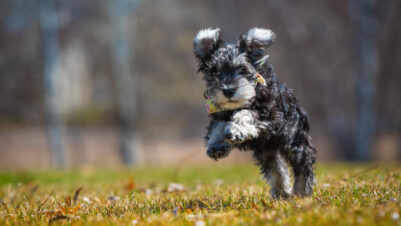
The RCVS Veterinary Nurse Disciplinary Committee has reprimanded and warned a veterinary nurse as to her future conduct following a series of animal theft convictions.
Miss Shakira Free Miles RVN was convicted on 25 October 2023 following a guilty plea to six counts of theft and one count of attempted theft, committed in 2018, on 25 October 2023 at Reading Crown Court. Miss Miles was later sentenced, on 2 February 2024, to a community order for a period of 18 months rehabilitation activity requirement and 100 hours unpaid work rehabilitation, to pay £250 compensation, an £85 victim surcharge, and £400 in costs. Her RCVS disciplinary hearing took place online on Monday 4 November and Tuesday 5 November 2024.
The transcript of the sentencing hearing made it clear that the thefts took place in the context of Miss Miles and her co-defendants mistakenly considering the animals they had stolen to be in poor condition and/or in need of rescuing. The animals stolen included a lamb, hens, piglets (on two separate occasions), goats, a calf, dogs, and an attempted theft of a pig. Miss Miles initially pleaded not guilty to the offences, before changing her plea to guilty on the second day of the trial.
The Committee found that the facts of the case were proved on admission by Miss Miles and on the basis that they accepted the copy of the Certificate of Conviction.
Deciding on Miss Miles’ fitness to practise, the Committee considered the evidence before it and the advice of the Legal Assessor. It also considered the transcript of remarks of the sentencing judge, as well as the fact that the events which led to the convictions occurred while Miss Miles was a registered veterinary nurse with the RCVS.
In terms of mitigating factors, the Committee considered that there was no financial gain associated with Miss Miles’ actions. In terms of aggravating factors, it noted the risk of injury to animals; that Miss Miles’ behaviour was pre-meditated; that individuals had been targeted in their own homes after dark (all but one of the thefts were from domestic settings); the stress and emotional harm to the owners; and, that there had been repeated criminal offending.
The Committee also considered Miss Miles’ motivations in respect of animal welfare in coming to its decision. However, it assessed the offences to be serious, taking into account their nature and circumstances. These were pre-planned, repeated thefts, and an attempted theft, from mostly domestic settings, carried out at night by Miss Miles and others dressed in dark clothing and some co-defendants wearing balaclavas. The sentencing judge highlighted the actual emotional harm caused to the owners which was also listed as an aggravating factor.
Paul Morris, chairing the Committee and speaking on its behalf, said: “The Committee was aware that breaches of the Code do not in themselves mean that the respondent is unfit to practise by reason of the conviction. However, the Committee took into account the nature and circumstances of the conviction and also considered the wider public interest. The Committee was satisfied that the respondent’s behaviour which led to the conviction created a real risk of harm to the animals in question, as was clear from the basis upon which the respondent was sentenced.
“Further, the behaviour which led to the conviction for the repeated offences in the circumstances in question brings the veterinary nursing profession into disrepute. To find otherwise would undermine public confidence in the profession and fail to uphold proper standards of conduct and behaviour.
“Accordingly, the Committee found that the conviction, set out in the charge, renders the respondent unfit to practise.”
When determining an appropriate sanction, the Committee considered the same aggravating factors it had evaluated when assessing fitness to practice. However, further mitigating factors, in addition to the fact that Miss Miles had no financial gain, included:
- that there were no concerns about her competence or quality of practice,
- there had been a significant lapse of time since the incidents,
- her guilty plea,
- co-operation with the regulatory process,
- disclosure of the conviction to the RCVS,
- no evidence of repetition of the offending behaviour,
- demonstration of some insight into the seriousness and impact of the offences on public trust and confidence,
- positive personal character references,
- remorse expressed for upset caused to the owners,
- apology to the RCVS and her profession,
- compliance with the requirements of the criminal sentence,
- and low risk of repetition.
The Committee considered the testimonials and character references which attested to Miss Miles’ exemplary practice, integrity, professionalism, compassionate approach to animals, commitment to animal welfare, work in educating others in animal welfare, and commitment to campaigning for animal welfare. However, it was noted that Miss Miles gave the impression to the Committee that while she accepted that it was wrong to commit the criminal offences, she also believed that her intention to protect the animals’ welfare was a justification.
Speaking on the sanction, Paul Morris said: “The Committee was of the view that the conviction was particularly serious, in that it involved offences of dishonesty on a repeated basis. The Committee also took into account that the respondent has invoked her beliefs to undermine an aspect of the sentencing judge’s remarks and has used those beliefs to justify her actions at the time before this Committee.
“However, the risk of re-offending is low and, as already stated, the Committee accepts the respondent’s assertion that she does not intend to break the law again, and the Committee is assured in this regard by the lack of repetition in the last six years. There was insight shown by the respondent into the effect of her conviction on public trust and confidence in the profession. The Committee weighed the demands of the public interest, as well as the previously stated mitigating and aggravating factors. In all the circumstances of this particular case, the Committee concluded that both a reprimand and a warning as to future conduct is sufficient and proportionate to meet the need to maintain public confidence in the profession and uphold proper standards.”
The Committee went on to consider an order of suspension but decided that this would serve no useful purpose in light of the low risk of repetition of criminal offending, the nature of which was unconnected to her daily role as an RVN. It could see no identifiable risk to animals now and in the future. The Committee decided that to impose a suspension would be punitive and disproportionate.
The reprimand and warning sanction imposed on the respondent will remain on her RCVS record indefinitely and will be taken into consideration should there be any future misconduct.
Please note this news story is a summary of the hearing to help understand the case and the Committee’s decision. The full documentation for the hearing can be found on the RCVS Disciplinary hearing webpage.






